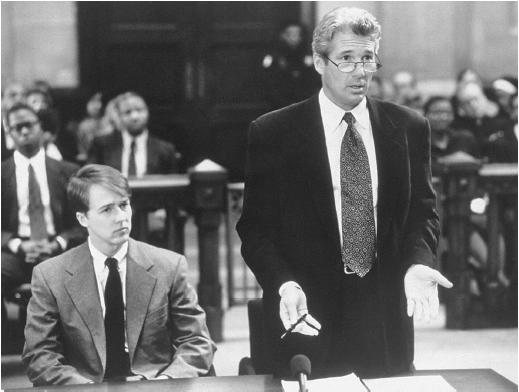Edward Norton - Actors and Actresses
Nationality: American. Born: Boston, Massachusetts, 18 August 1969; raised in Columbia, Maryland. Education: Yale University, B.A. in History, 1991. Career: Stage actor, early 1990s; appeared on Broadway in Waiting for Lefty , 1992; recorded audiotape of Tom Clancy's Ambush at Fort Bragg , 1997. Address: International Creative Management, 8942 Wilshire Blvd., Beverly Hills, CA, 90211, U.S.A.
Films as Actor:
- 1996
-
Everyone Says I Love You (Allen) (as Holden Spence); The People vs. Larry Flynt (Forman) (as Alan Isaacman); Primal Fear (Hoblit) (as Aaron Stampler)
- 1998
-
Out of the Past (doc) (Dupre) (as narrator); American History X (Kaye) (as Derek Vinyard); Rounders (Dahl) (as Lester "Worm" Murphy)
- 1999
-
Fight Club (Fincher) (as Narrator/Jack); Forever Hollywood (doc) (Glassman and McCarthy) (as Himself); A Salute to Dustin Hoffman (doc) (Gowers—for TV) (guest)
- 2000
-
Keeping the Faith (as Brian Finn, + d, pr)
Publications
By NORTON: articles—
Fuller, Graham, "The New Edwardianism," interview in Interview (New York), January 1997.
Fuller, Graham, "Fighting Talk," interview in Interview (New York), November 1999.
On NORTON: articles—
Hoban, Phoebe, "He's Hot but Cool to Lure of Fame," in New York Times , 19 January 1997.
Handelman, David, "Wanted: Edward Norton," in Vogue , January 1997.
Maslin, Janet, "Such a Very Long Way From Duvets to Danger," in New York Times , 15 October 1999.
* * *
Edward Norton is that extreme rarity among modern actors: someone who actually seems more interested in becoming an actor than becoming a star—though he seems destined for both. Having received two Academy Award nominations in his first six film roles, Norton has reason to believe that stardom can actually detract from an actor's ability to act, since the more the audience knows about an actor, the harder it is for them to suspend their disbelief.
An excellent example of this is Norton's first role, in Primal Fear (1996), where nothing stood in the way of the audience's believing in his Aaron Stampler, the mentally unbalanced Appalachian choirboy accused of killing an archbishop who is defended by a smarmy Richard Gere. Reviewers and friends always pride themselves on not giving away a film's surprise ending but, by doing so, they are giving

In Everyone Says I Love You and The People vs. Larry Flynt , Norton moved effortlessly from a backwoods psycho to a singing and dancing boy-next-door, and then on to an idealistic attorney in a performance to which The New York Times said Norton brought "a Jimmy Stewart-like sincerity." In Rounders (1998), Norton reversed directions again, playing Worm, a fast-talking card shark addicted to the dangerous world of high-stakes poker. While working on his character—whom he saw to be like Bugs Bunny: a merry prankster with a chaotic impulse—he went with a friend to a Rolling Stones concert, and seeing Keith Richards on stage gave Norton that aspect of the role he had been missing: the strutting cowboy.
No role he has undertaken has caused as much controversy as the part of Derek Vinyard in American History X , in which Norton goes from a hate-mongering skinhead with a swastika tattoo to someone who has renounced his past and hopes to save his little brother (Edward Furlong). Norton realized that to be intimidating as a skinhead, he needed to be more of a physical presence, so (a la Robert De Niro) he worked out for three months, toning and sculpting his thin body and gaining 30 pounds of muscle. Meanwhile, he was reading hate literature and visiting on the Internet and in person with current and former skinheads. Most of the film's controversy centered on the fear that, by portraying a skinhead and making him seem more human, Norton would be glamorizing that lifestyle. The fears were misplaced. While his transformation, as written, may be a little too pat, there is no question that Norton's performance is frighteningly good and that the filmmakers' hearts were in the right place. For his work, Norton received a Best Actor Oscar nomination.
Fight Club also had its share of controversy, creating a generalized fear that this macho comedy was advocating anarchy. Norton plays the narrator, who is suffocating in a white-collar job until he meets his alter ego, Tyler Durden (Brad Pitt), and the two form a fight club where men pummel one another just so they can feel something. No longer needing his muscle mass, Norton lost half the weight he had gained for American History X. The movie received widely varying reviews; The New York Times reviewer wrote: "The teamwork of Mr. Norton and Mr. Pitt is as provocative and complex as it's meant to be. Mr. Norton, an ingenious actor, is once again trickier than he looks."
If Norton keeps playing roles extraordinarily well, he may find it harder and harder to avoid stardom, though few actors have been so eloquent in discussing its dangers. He has no interest in being fodder for the rumor mill because, on a personal level, it "can be corrosive topleading a good and happy life" and can cheapen personal moments through "the sharing of them randomly, arbitrarily, with everybody," and, as an actor, "it could corrode what I think I have to offer as an actor, who can do different parts that are as unrecognizable from one another as possible. Every little thing that people know about you as a person impedes your ability to achieve that kind of terrific suspension of disbelief that happens when an audience goes with an actor and character that they're playing." His goal is to create characters—like Travis Bickle in Taxi Driver or Ratso Rizzo in Midnight Cowboy —who seem to live on in the collective unconscious entirely independent of the actors who played them. If any actor today has a shot at creating such characters, it is probably Edward Norton
—Bob Sullivan
Comment about this article, ask questions, or add new information about this topic: